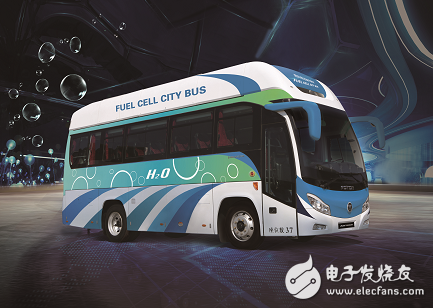Recently, the Futian Ouhui hydrogen fuel cell bus was praised by Canada's Prime Minister and has gained a large following. Foshan hosted the "Second International Conference on Hydrogen Energy and Fuel Cell Industry Development" and the "First China (Foshan) International Hydrogen Energy and Fuel Cell Technology and Product Promotion Conference." This week-long event aimed to promote Foshan as a leading base for hydrogen energy in the country and to establish a new energy vehicle industrial park. The development of hydrogen fuel cells in Foshan is progressing rapidly, with the Futian Group’s hydrogen-powered buses already making a strong impression. This raises an important question: Is the "hydrogen future" really coming? Could hydrogen fuel cells eventually replace lithium batteries, which are reaching their performance limits, as the ideal power source for new energy vehicles? Foshan's "Hydrogen Energy Week" and Futian's hydrogen bus have become central topics in the industry. During the conference, the Guangdong Hydrogen Fuel Cell Vehicle Industry Association was launched, along with the formation of China's Hydrogen Energy Industry Alliance. The first group standard for proton exchange membrane fuel cell vehicles was also released. Additionally, Foshan's Nanhai District has taken steps to establish the first commercial hydrogen refueling station in China, marking a significant milestone in the local hydrogen energy ecosystem. Futian Motor is at the forefront of hydrogen fuel cell technology. On December 4th, Canada's Prime Minister visited the Futian Ouhui 12-meter hydrogen fuel cell bus and commended China's advanced R&D capabilities. The Futian Ouhui hydrogen bus comes in various sizes, including 8.5m, 10.5m, and 12m models, and is used in city buses, intercity shuttles, and tourist services. With no vibration or noise, it can travel up to 500 km in just 10 minutes of refueling, offering both efficiency and safety. In its pursuit of a hydrogen-powered future, Futian Ou Hui has laid a solid foundation in the Chinese new energy vehicle market. With continued investment and innovation, it may soon become a major player in the global hydrogen energy sector. The development of hydrogen energy globally Many countries, including China, have recognized hydrogen energy as a strategic resource due to its zero pollution, high efficiency, and wide range of applications. Countries facing environmental challenges see hydrogen as the "energy of the future." 1. Early development of hydrogen energy abroad Since the 1970s, many countries have been researching hydrogen energy. In 2003, U.S. President George W. Bush launched the "FreedomCAR Initiative," focusing on funding research into hydrogen-powered vehicles. However, high costs led to delays in some projects. By 2014, with declining fossil fuel reserves, interest in hydrogen energy revived. Japan has been one of the most active promoters of hydrogen energy. In 2014, Japan's Ministry of Economy, Trade and Industry released the "Hydrogen and Fuel Cell Strategy Roadmap," aiming to build a hydrogen society. By 2030, the country hopes to achieve a hydrogen-related industry worth 1 trillion yen. Japan even planned to make the 2020 Tokyo Olympics a hydrogen event, using hydrogen-powered buses for athletes and spectators. The U.S., while not as aggressive as Japan, has also invested heavily in hydrogen. In 2015, the U.S. Department of Energy released a report on hydrogen and fuel cell technologies, investing $30 million to develop advanced systems. Toyota, Honda, and Nissan have all introduced hydrogen-powered cars, showing that the automotive industry is leading the way in hydrogen application. 2. China is catching up in hydrogen energy China is not lagging behind in hydrogen energy research. From 2006 to 2013, companies like Futian and Tsinghua University were involved in developing hydrogen fuel cell buses. By 2014, Futian had produced five 12-meter hydrogen buses. Today, Futian has established a complete production base for hydrogen fuel cell vehicles, covering R&D, manufacturing, and fuel supply. Guangdong Province has built a full industry chain, from hydrogen storage to vehicle operation. Chinese universities and companies are actively working on hydrogen technology. The success of Futian's hydrogen buses has even caught the attention of foreign leaders and experts. While the global hydrogen energy scene is still evolving, China is making steady progress. It's only a matter of time before more new energy vehicles run on hydrogen, potentially replacing lithium batteries as the next big energy star. Lithium Ion 12V Battery,12V Li Ion Battery,Lithium Ion 12V Deep Cycle Battery,12V Li Ion Battery Pack Langrui Energy (Shenzhen) Co.,Ltd , https://www.langruibattery.com